Paul Travis, among the most predictive, sensitive and talented artists of the Cleveland School was born in Wellsville, Ohio near the border of Pennsylvania. Paul Travis became a painter, lithographer, etcher, and teacher, living in Cleveland Heights, Ohio. His name is closely associated with the watercolor tradition of Northeast Ohio. He graduated from the Cleveland School of Art where he was a student of Henry Keller, the renowned tonalist painter. Travis studied there for five years where he became a protégé of Keller’s, and also encountered Charles Burchfield and Frank Wilcox, all of whom later became acknowledged members of the Cleveland School. Travis remained friends with Burchfield and Wilcox for the rest of his life.
Travis served in the Army in World War I, and while serving, he completed a prolific body of war related paintings and drawings. He spent most of the remainder of the war in Le Mans, but also traveled widely throughout France, painting and sketching. After the war he was appointed as an art teacher at the American Forces University of Beaune.
In 1920, he returned to Ohio to teach at the Cleveland School, renamed the Cleveland Institute of Art in 1940. In addition he also taught at Western Reserve University beginning in 1956.
In 1928, at the age of 36, Travis used a sabbatical from teaching to take a much celebrated eight-month trip to Africa. Travis’s trip was sponsored by a number of Cleveland-area organizations, including The Gilpin Players of Karamu House, the African Art Sponsors, the Cleveland Museum of Natural History, and the Cleveland Museum of Art. Travis traveled roughly the same path as famed British explorer Henry Morton Stanley, from Cape Town, South Africa, to Cairo, Egypt. This trip motivated Travis to prolific production. Along the way, Travis sketched, took video and photographs, and collected artifacts. The artwork and artifacts Travis amassed during his 1928 trip through Africa went into the collections of the Cleveland Museum of Art, the Cleveland Museum of Natural History, and Karamu House. The Cleveland Museum of Art received works Travis collected from the Mangbetu people while in the northeastern part of Congo, and as of June 2010, the museum owns 71 pieces of art created by Travis himself. Some of Travis’s diary entries, letters, and film footage have been stored in the Smithsonian‘s Archives of American Art.
By the time the Cleveland Museum of Art held its 52nd May Show in 1971, Travis had exhibited and won regularly in all 52 shows. Dan Tranberg of the Cleveland Plain Dealer called Travis’ work “ some of the most historically significant art this city has ever produced.” In 2001 the Cleveland Artist’s Foundation published a retrospective of Travis’ work.
Travis’ work is unique and important. Unlike many American artists of the period who painted their regional rolling hills and local city scenes Travis’ art often expressed the most important emotions and concerns of the 20th century; global colonization and exploitation, racism and inhumanity, the bomb and global apocalypse.
Travis’ sensitivity in much of his subject matter underscores the predictive nature of some artists. In many compositions Travis clearly raised flags about these issues that would later consume the entire world.
Memberships included the American Society for Aesthetics; Cleveland Society for Aesthetics, which in 1946 he served as President; Cleveland Museum of Modern Art; and the Archaeological Institute of America.
Some early exhibition venues included The Cleveland Museum of Art, 1920-1958; The Pennsylvania Academy of the Fine Arts; The Brooklyn Museum; The Museum of Modern Art; The Art Institute of Chicago; Golden Gate Exposition, 1939; Carnegie Institute; Corcoran Gallery Biennials; Pasadena Art Institute, 1946; Butler Art Institute, 1936-1958; Ohio Watercolor Society, and Cleveland Art Association.
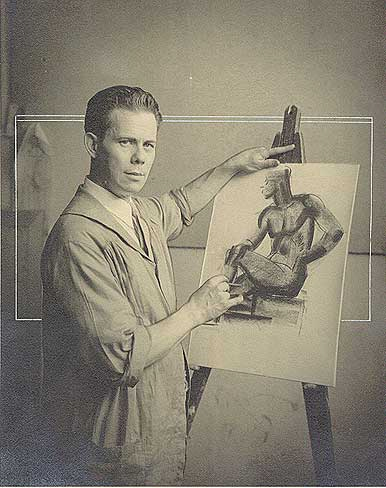
Works by Paul Bough Travis
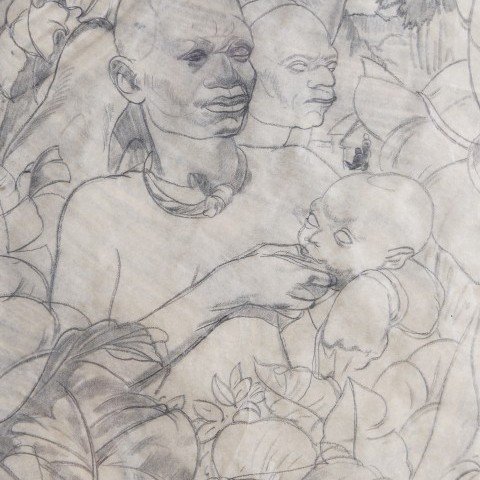
Pygmy Mother and Child, Mid-20th Century Paul Bough Travis
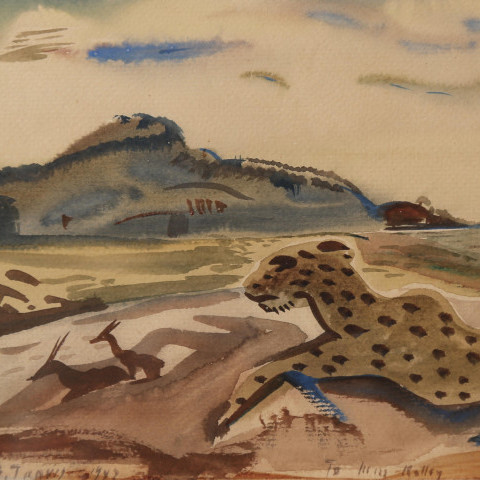
Cheetah, 1947 Paul Bough Travis
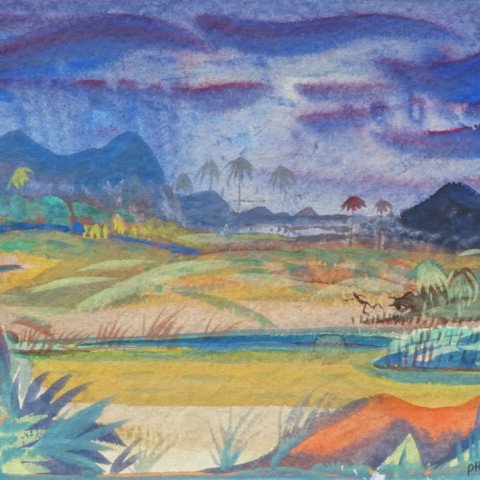
Water Hole, Tanganyika, 1956 Paul Bough Travis
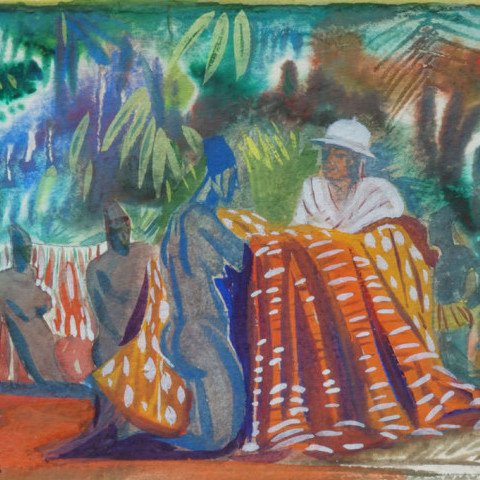
African Scene, 1956 Paul Bough Travis
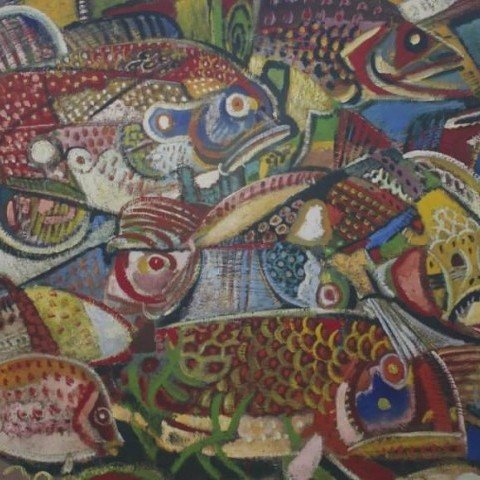
SOLD
Aquarium Paul Bough Travis
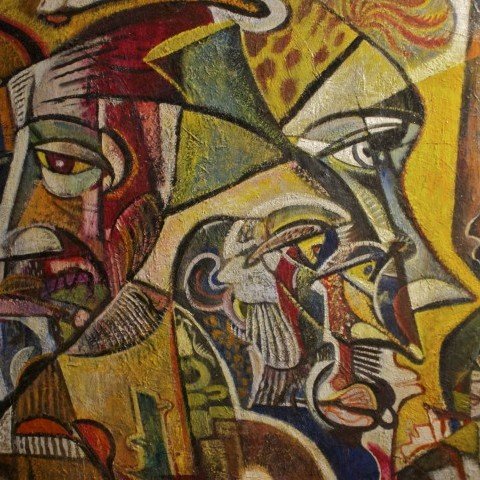
SOLD
Faces Paul Bough Travis
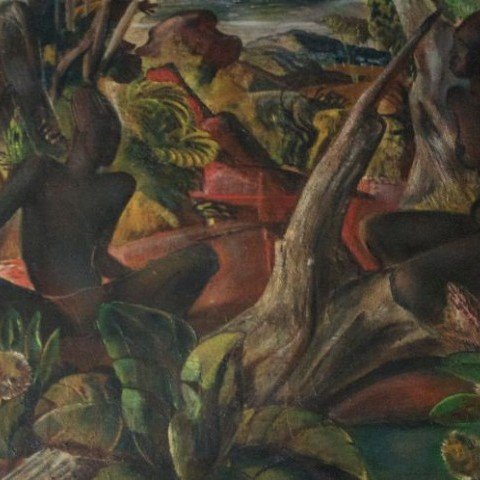
SOLD
Jungle Courting Scene Paul Bough Travis
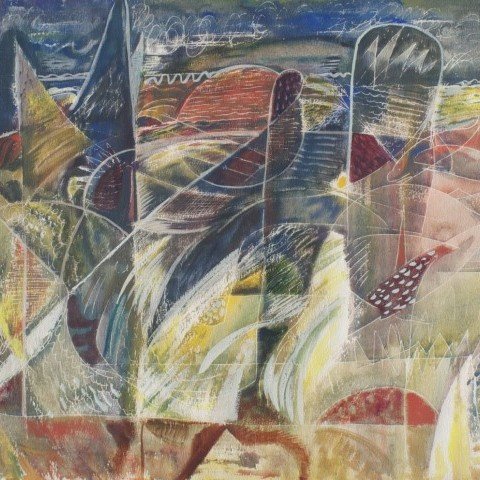
SOLD
Sea Abstractions Paul Bough Travis
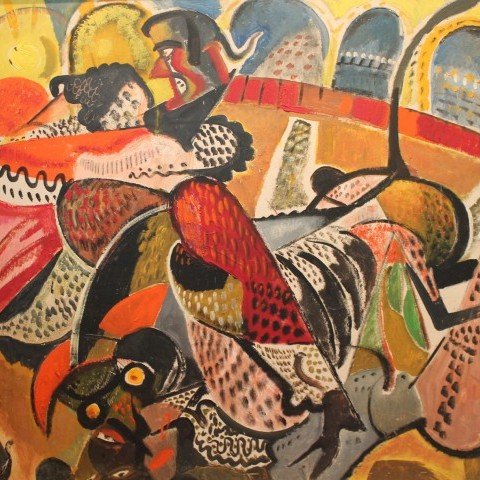
SOLD
Spanish Bull Fight Paul Bough Travis
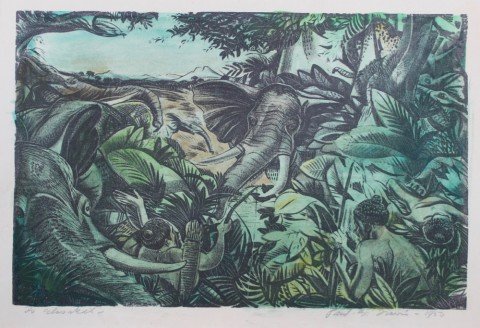
SOLD
Jungle Scene with Elephants and Native Hunters, 1956 Paul Bough Travis

SOLD
Mt. Kilimanjaro, Evening, 1929 Paul Bough Travis

SOLD
Amaryllis Flower and Landscape, 1937 Paul Bough Travis
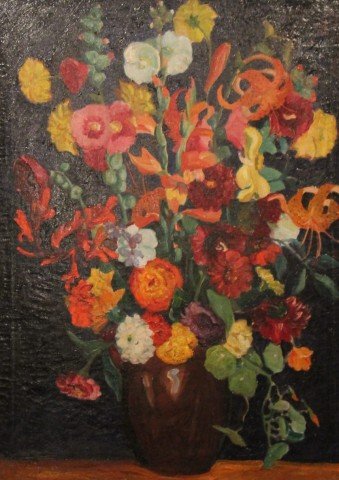
SOLD
Floral Still Life Paul Bough Travis
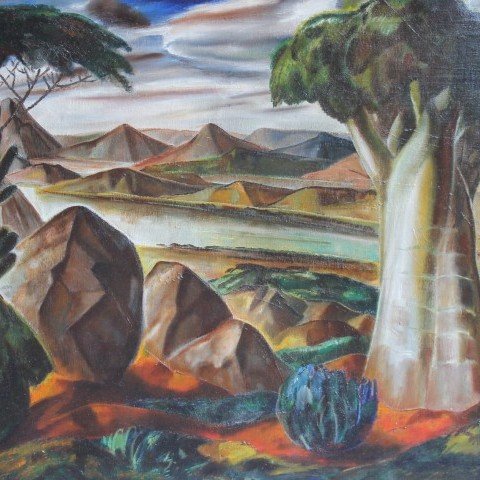
SOLD
Tanganyika, Africa, 1927 Paul Bough Travis
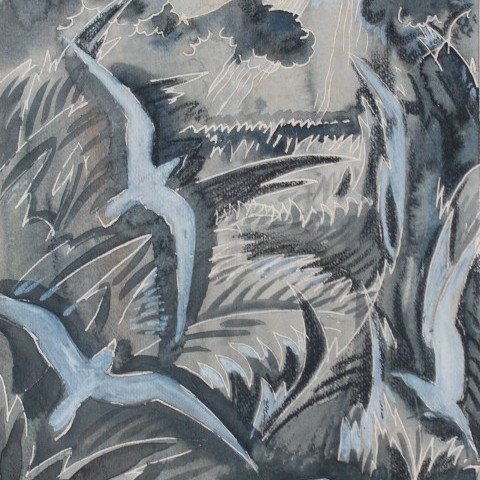
SOLD
Landscape with Birds in Flight Paul Bough Travis
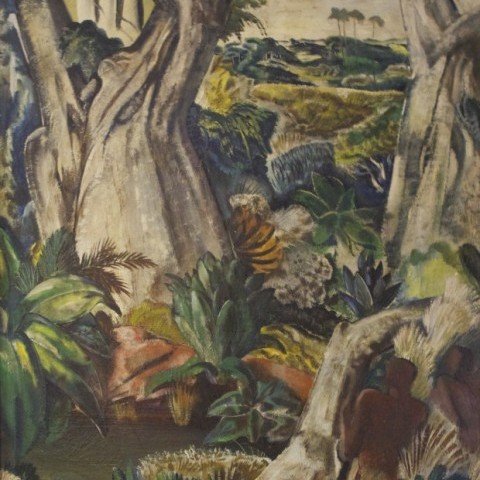
SOLD
Jungle Scene II, 1945 Paul Bough Travis
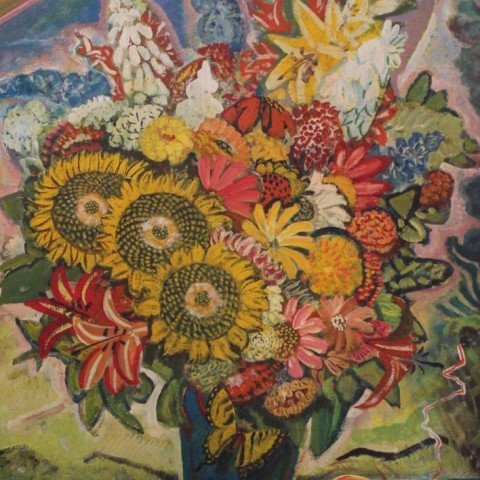
SOLD
Summer Bouquet, 1948 Paul Bough Travis
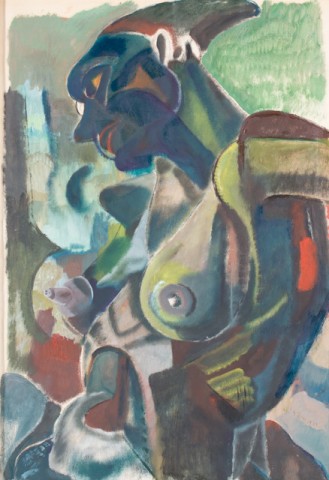
SOLD
Mangbetu Woman, 1948 Paul Bough Travis
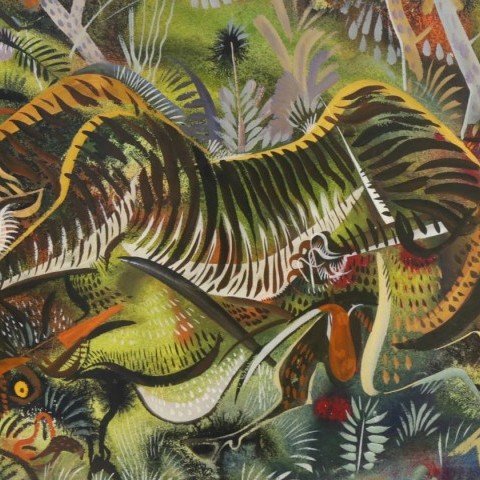
SOLD
Tiger and Bull Paul Bough Travis
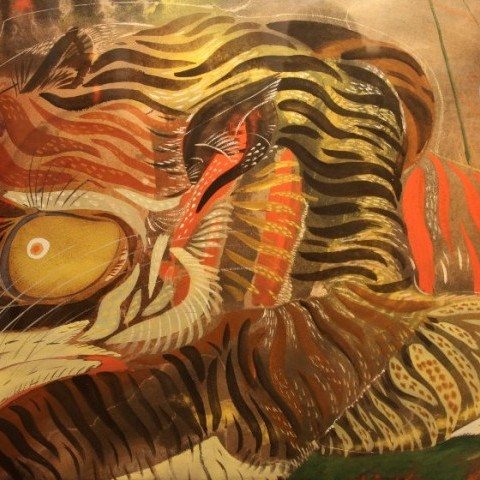
SOLD
Tiger, 1952 Paul Bough Travis
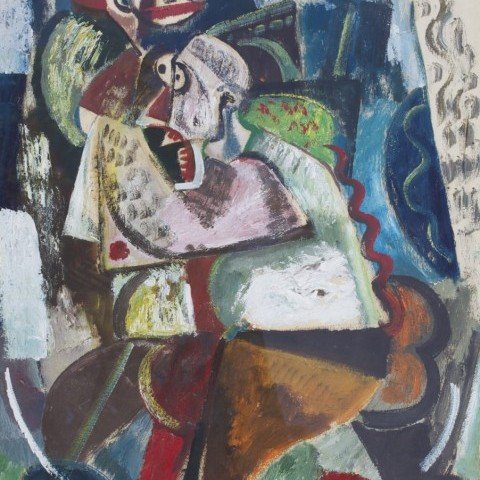
SOLD
Ecstasy, 1953 Paul Bough Travis
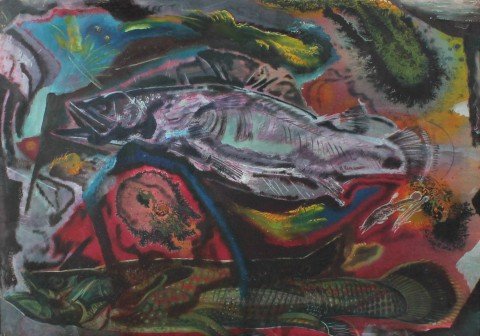
SOLD
Ancient Fish, 1953 Paul Bough Travis
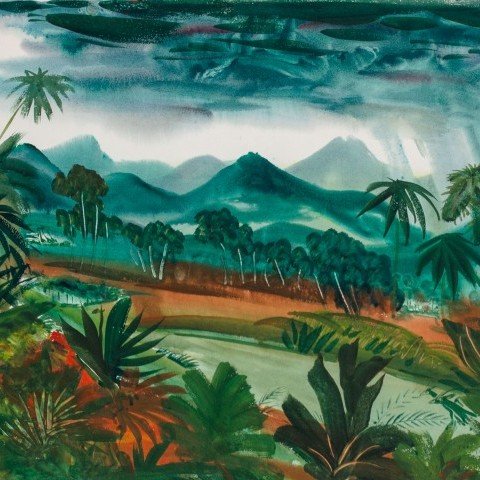
SOLD
African Landscape, 1953 Paul Bough Travis
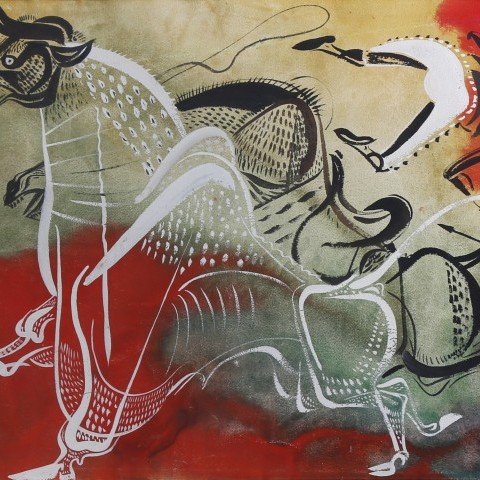
SOLD
The Bullfighter's Loss, Madrid, 1953 Paul Bough Travis
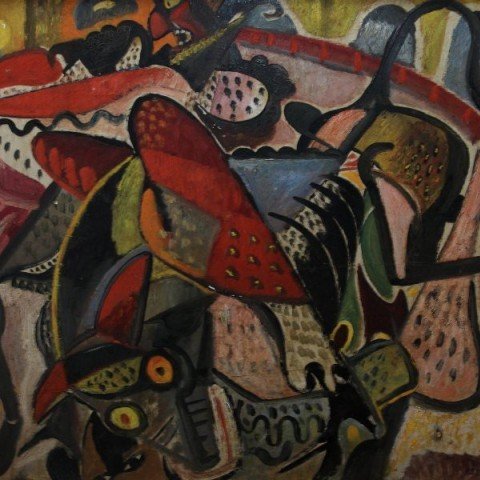
SOLD
Spanish Bull Fight II, 1955 Paul Bough Travis
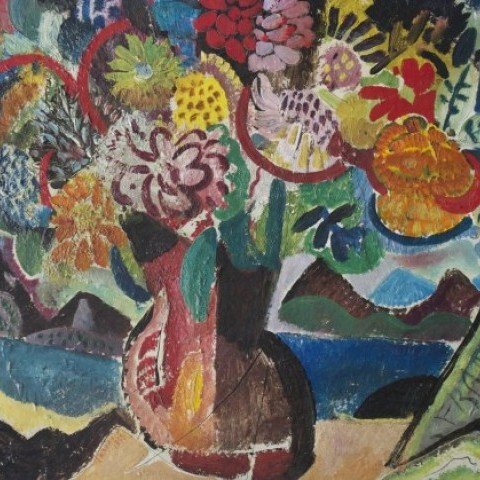
SOLD
Still Life, France, 1955 Paul Bough Travis
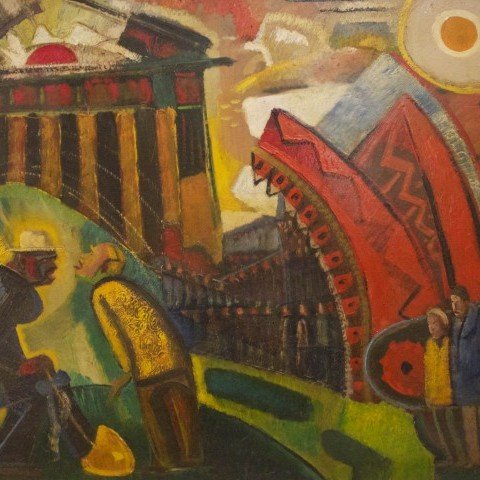
SOLD
Construction of the New Cleveland Institute of Art, 1956 Paul Bough Travis
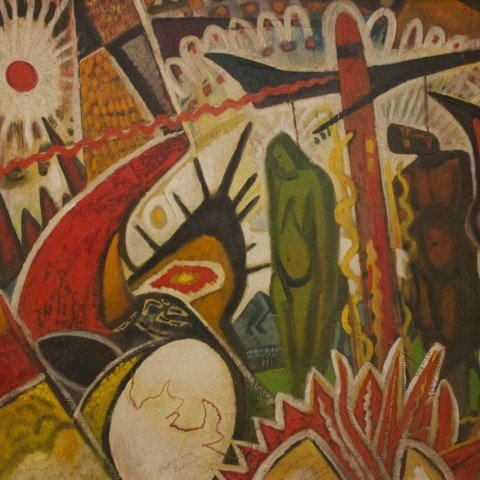
SOLD
The Lynching, 1956 Paul Bough Travis
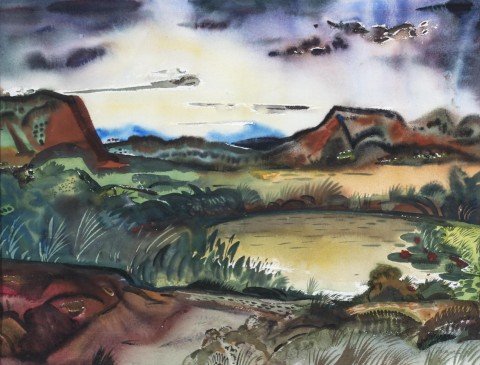
SOLD
African Waterhole, 1956 Paul Bough Travis
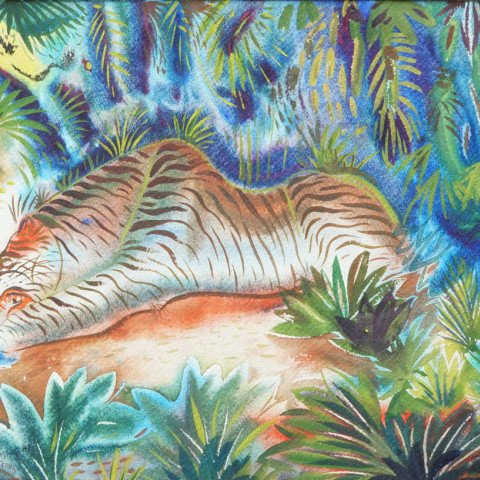
SOLD
Tiger, c. 1956 Paul Bough Travis
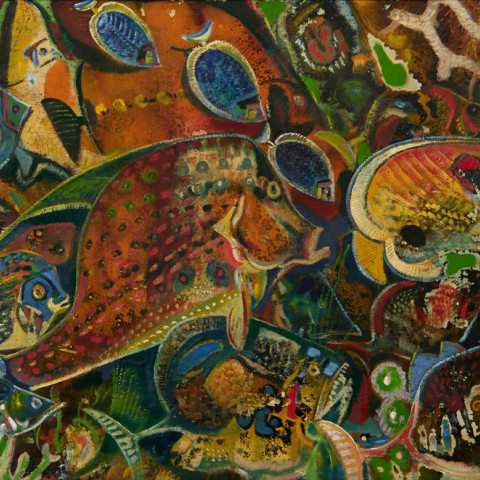
SOLD
Aquarium, 1956 Paul Bough Travis
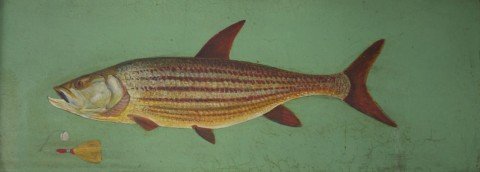
SOLD
Tiger Fish, 1959 Paul Bough Travis
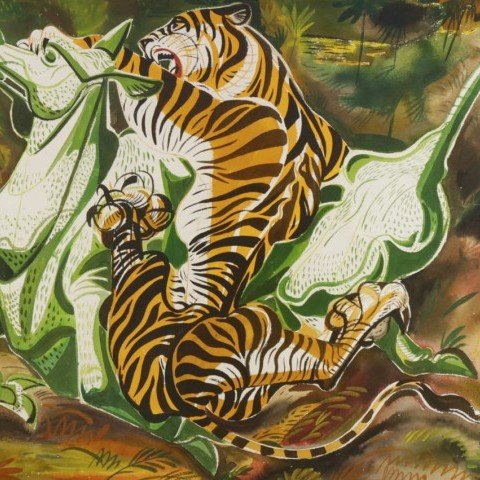
SOLD
Tiger and Green Horse, 1959 Paul Bough Travis
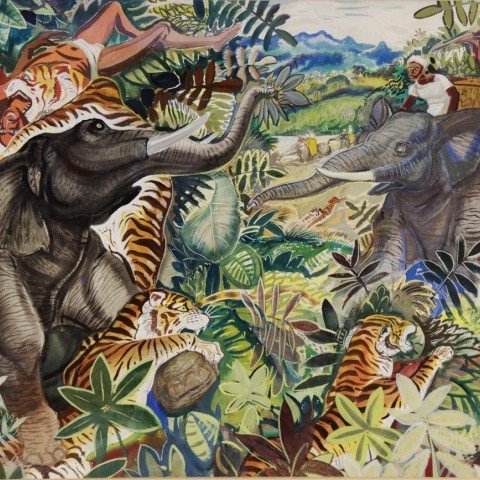
SOLD
Maharaja's Hunting Party, 1959 Paul Bough Travis
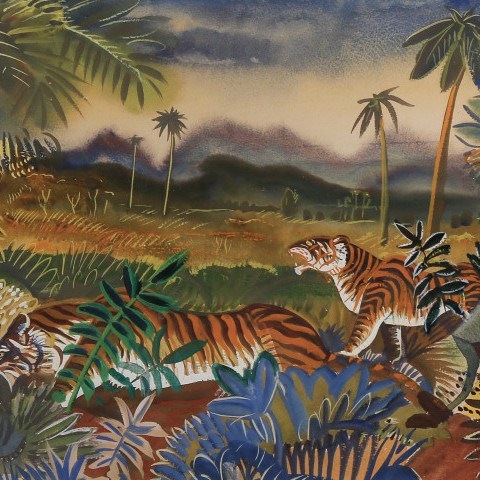
SOLD
Landscape with Tigers, 1959 Paul Bough Travis
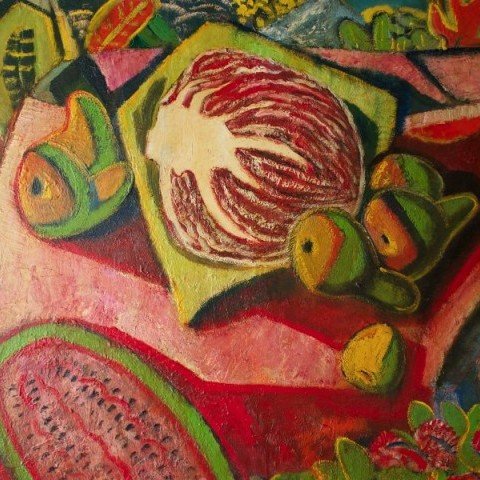
SOLD
Still Life #1, Summer Paul Bough Travis
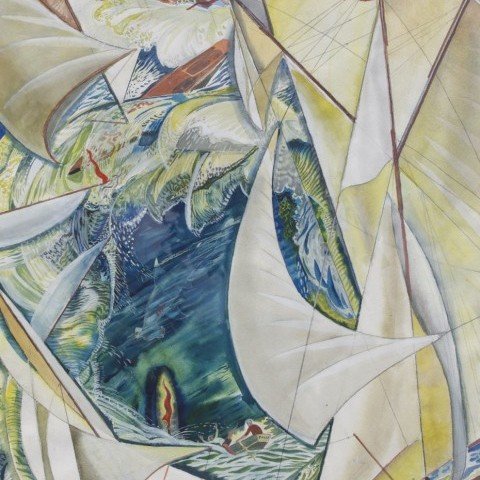
SOLD
Disaster at Gay Head, Mass., 1962 Paul Bough Travis
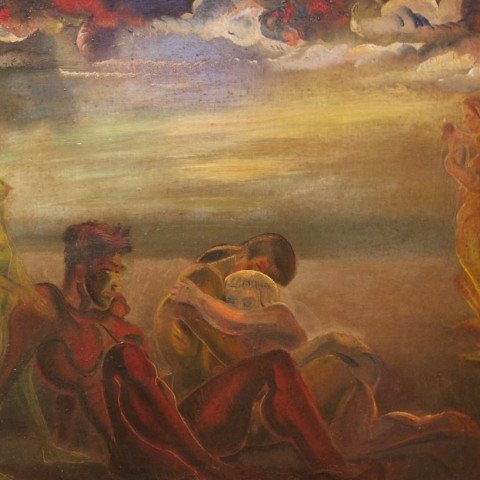
SOLD
California Paul Bough Travis
